
KEW BULLETIN
Scope & Guideline
Illuminating the Path of Ecological and Botanical Discoveries
Introduction
Aims and Scopes
- Plant Taxonomy and Systematics:
The journal emphasizes the description and classification of new plant species, providing essential taxonomic revisions that contribute to the understanding of plant diversity. - Ecology and Conservation:
In addition to taxonomy, there is a strong focus on the ecological aspects of plants, including their conservation status, habitat requirements, and threats, especially in biodiverse and endangered regions. - Global Flora Documentation:
The journal seeks to document and provide insights into the flora of various regions, particularly those that are under-researched, such as tropical forests and mountainous areas. - Integrative Taxonomy:
Utilizing both morphological and genetic data, the journal promotes integrative approaches to species delimitation, enhancing the understanding of complex plant groups. - Endemism and Rare Species:
A significant focus is given to the documentation of endemic and critically endangered species, highlighting the need for conservation actions and awareness.
Trending and Emerging
- Molecular Phylogenetics:
There is a growing trend toward incorporating molecular techniques to resolve taxonomic ambiguities and clarify phylogenetic relationships among plant species. - Conservation Biology:
Research related to conservation strategies, particularly for threatened and endemic species, is gaining momentum, indicating a shift towards practical applications of botanical research. - Climate Change Impacts on Flora:
Emerging studies are increasingly addressing the effects of climate change on plant distribution and ecology, highlighting the urgency of understanding these impacts for future conservation efforts. - Urban Botany and Green Infrastructure:
The rise of urban botany research suggests a new focus on the role of plants in urban ecosystems and green infrastructure, reflecting contemporary environmental concerns. - Ethnobotany and Indigenous Knowledge:
There is an increasing interest in the intersection of botany with ethnobotany, where traditional knowledge and plant use by indigenous communities are being documented and studied.
Declining or Waning
- Traditional Floristic Studies:
There is a noticeable decrease in traditional floristic studies that primarily catalog plant species without providing new insights into taxonomy or ecology. - General Nomenclature Issues:
Papers focused solely on nomenclatural changes without substantial taxonomic or ecological contributions have become less prominent, as the journal shifts towards more impactful studies. - Regional Studies Outside Biodiversity Hotspots:
Research focusing on less biodiverse regions or well-explored areas may be waning, as the journal increasingly prioritizes studies from biodiversity hotspots where new discoveries are more likely.
Similar Journals

TAIWANIA
Unveiling the complexities of our natural world.TAIWANIA is a prestigious and long-standing journal dedicated to the fields of ecology, evolution, and systematics, published by NATIONAL TAIWAN UNIVERSITY PRESS. Since its inception in 1947, this open-access journal has provided a vital platform for researchers to disseminate their findings, encouraging collaboration and innovation in the ecological sciences. With a 2023 impact factor placing it in Quartile 2 for Ecology and Quartile 3 for Ecology, Evolution, Behavior and Systematics, TAIWANIA is recognized for its quality and influence, ranking #267 out of 461 in Environmental Science and #426 out of 721 in Agricultural and Biological Sciences within Scopus. The journal currently publishes contributions from both local and international researchers, showcasing a diverse array of topics that address crucial ecological issues and facilitate the advancement of knowledge in the discipline. For those seeking rigorous research, engaging reviews, and a commitment to open access, TAIWANIA remains a significant resource for the global scientific community.
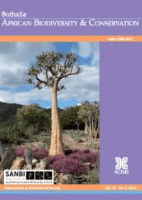
BOTHALIA
Championing the science of ecology and evolution.BOTHALIA is a prominent open-access journal dedicated to advancing the fields of Ecology, Evolution, Behavior, and Systematics, as well as Plant Science. Published by the South African National Biodiversity Institute (SANBI), this journal has been disseminating valuable research since 1978 and has embraced open access since 2014 to enhance the visibility and accessibility of scientific knowledge. With an ISSN of 0006-8241 and E-ISSN of 2311-9284, BOTHALIA plays a pivotal role in promoting biodiversity research in South Africa and beyond. In the recent Scopus rankings, it has been positioned at Q4 in both relevant categories, highlighting its contributions within the broader scientific community, despite being in its growing phase amidst competitive rankings. The journal aims to publish high-quality articles that address critical issues in biodiversity and ecological sciences, making it an essential resource for researchers, professionals, and students committed to understanding and managing our planet's biological heritage.
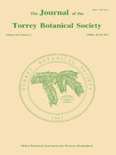
JOURNAL OF THE TORREY BOTANICAL SOCIETY
Elevating the discourse in botanical research and education.JOURNAL OF THE TORREY BOTANICAL SOCIETY is a prominent academic journal dedicated to advancing the fields of botany and ecology, published by the esteemed TORREY BOTANICAL SOCIETY. With an ISSN of 1095-5674 and an E-ISSN of 1940-0616, this journal serves as a critical platform for researchers, professionals, and students to share their findings and insights. Despite its status in the Q4 category for the 2023 rankings across Ecology, Plant Science, and Ecology, Evolution, Behavior and Systematics, the journal continues to foster significant discourse and collaboration in the botanical sciences, aiming to elevate the understanding of plant biology and ecosystems. Its open access options enhance accessibility, ensuring that groundbreaking research reaches a wider audience. Published in the United States, the journal features work from both established scientists and emerging scholars, making it a vital resource for anyone involved in the study of plants and their environmental interactions. Explore the JOURNAL OF THE TORREY BOTANICAL SOCIETY to engage with cutting-edge research and contribute to the ongoing dialogue in the botanical sciences.

ACTA SOCIETATIS BOTANICORUM POLONIAE
Nurturing Knowledge in the Botanical SciencesACTA SOCIETATIS BOTANICORUM POLONIAE is a reputable open-access journal dedicated to the field of Plant Science, published by the Polskie Towarzystwo Botaniczne since 1923. With an ISSN of 0001-6977 and an E-ISSN of 2083-9480, this journal has made significant contributions to the botanical sciences, fostering the dissemination of research from Poland and beyond. The journal has ranked in the third quartile (Q3) within its category in the 2023 journal metrics, demonstrating a strong presence in the global academic community, as evidenced by its Scopus ranking of 291/516 within the Agricultural and Biological Sciences sector, placing it in the 43rd percentile. While specific H-Index data are currently not available, ACTA continues to attract submissions from a broad international audience and publishes a wide range of studies that advance the understanding of plant biology, ecology, and conservation. The journal remains a vital resource for researchers, professionals, and students alike, committed to enhancing knowledge and collaboration in botanical science.
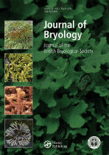
JOURNAL OF BRYOLOGY
Championing the Study of Vital Plant GroupsThe JOURNAL OF BRYOLOGY, published by TAYLOR & FRANCIS LTD, is an esteemed academic journal dedicated to the field of bryology, focusing specifically on the study of mosses and liverworts. With an impressive converged publication record from 1972 to 2024, the journal offers a platform for the dissemination of high-quality research that explores ecological, evolutionary, and systematic aspects of these vital plant groups. The journal is recognized within the Q2 quartile in both the Ecology, Evolution, Behavior and Systematics and Plant Science categories, demonstrating its significance in contributing to the scientific community's understanding of plant life. With its notable Scopus Rankings placing it in the top echelons of its field, the JOURNAL OF BRYOLOGY serves as an essential resource for researchers, professionals, and students alike, fostering a deeper appreciation of bryophyte biodiversity and their ecological roles. The journal does not currently offer an open access option, ensuring that subscribers have access to well-curated, rigorously peer-reviewed studies filled with critical insights into flora conservation and environmental sustainability.
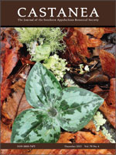
CASTANEA
Connecting Scholars to the Heart of Botanical ScienceCASTANEA is a distinguished journal published by the SOUTHERN APPALACHIAN BOTANICAL SOCIETY in affiliation with NEWBERRY COLLEGE. With an ISSN of 0008-7475 and an E-ISSN of 1938-4386, this esteemed publication serves as a vital platform for researchers and practitioners in the field of Plant Science. It has been circulating since 1982, and its scope focuses on the study of trees, their ecology, and conservation, thereby contributing significant insights into the biodiversity of the Southern Appalachian region and beyond. Despite its current ranking in the Q4 quartile and the 5th percentile in the Scopus Agricultural and Biological Sciences category, CASTANEA is committed to advancing knowledge and fostering a deeper understanding of plant sciences among academics and students alike. The journal does not currently offer Open Access options, maintaining a traditional subscription model that allows for carefully curated and peer-reviewed content. As you explore the advances in plant biology through CASTANEA, you will find an invaluable resource that supports both emerging and established scholars in their research endeavors.
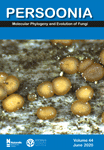
PERSOONIA
Exploring the Frontiers of Evolution and BehaviorPERSOONIA, a distinguished journal published by RIJKSHERBARIUM, serves as a pivotal platform for the dissemination of high-quality research in the fields of Ecology, Evolution, Behavior, and Systematics, as well as Plant Science. Established with a commitment to advancing scientific knowledge, PERSOONIA has achieved an impressive Q1 ranking in these areas, highlighting its significant impact within the academic community, as evidenced by its ranking of #12 out of 721 journals in its field, placing it in the top 2% of publications. With a publication history that spans from 1996 to present, the journal regularly features innovative studies that push the boundaries of understanding in ecological and botanical sciences. While Open Access options are currently limited, researchers and professionals alike benefit from subscription access to this vital resource. Located in the Netherlands, PERSOONIA continues to be a beacon for scholars aiming to enrich the discourse in evolving ecological and plant science disciplines.

BRITTONIA
Advancing the Science of Plant LifeBRITTONIA, published by Springer, stands as a reputable journal dedicated to advancing the fields of botany and plant sciences. With a storied history dating back to 1931, this journal has evolved to embrace contemporary research spanning various aspects of plant biology, ecology, and systematics. Focusing on a comprehensive analysis of both ecological interactions and plant systematics, BRITTONIA plays a crucial role in disseminating knowledge among researchers and professionals committed to understanding plant life and its environmental contexts. Despite its open access status being currently unavailable, the journal ensures wide accessibility through institutional subscriptions. In the latest rankings, it proudly holds a Q2 category in Plant Science and a Q3 category in Ecology, Evolution, Behavior, and Systematics, indicating its growing influence and academic rigor. Researchers and students alike will find BRITTONIA an essential resource for the latest findings and discussions in plant sciences.

Bangladesh Journal of Plant Taxonomy
Unlocking the secrets of Bangladesh's botanical diversity.Welcome to the Bangladesh Journal of Plant Taxonomy, a leading open-access publication dedicated to advancing the understanding of plant taxonomy in the context of Bangladesh's rich biodiversity. Published by the Bangladesh Association of Plant Taxonomists, this journal plays a crucial role in fostering academic discourse and dissemination of research findings since its establishment. With its ISSN 1028-2092 and E-ISSN 2224-7297, the journal provides a platform for researchers, professionals, and students to share their contributions to plant science. Although it has discontinued its coverage in Scopus from 2018, it remains a valuable resource, evidenced by its rankings in the agricultural and biological sciences categories, including a placement of #330/403 in Plant Science and #515/588 in Ecology, Evolution, Behavior, and Systematics. Open access since 2005, the journal ensures that critical research is freely available to all, supporting the global community in the study and preservation of plant biodiversity.

KOREAN JOURNAL OF PLANT TAXONOMY
Discovering the intricate tapestry of plant taxonomy.Korean Journal of Plant Taxonomy, published by the Korean Society of Plant Taxonomists, serves as a pivotal platform for researchers and professionals in the fields of plant taxonomy and ecology. With an ISSN of 1225-8318 and a burgeoning E-ISSN of 2466-1546, this journal aims to disseminate high-quality research that contributes to our understanding of plant species diversity, classification, and evolution. Spanning the years from 2018 to 2024, the journal finds its niche within Q3 rankings in both Ecology, Evolution, Behavior and Systematics and Plant Science, reflecting its impactful contributions and relevance in the academic community. The journal's scope encompasses various studies aimed at advancing plant taxonomy in South Korea and globally. By fostering collaboration and sharing groundbreaking research, the Korean Journal of Plant Taxonomy plays a crucial role in shaping the discourse in plant sciences, making it an invaluable resource for students, researchers, and professionals alike, committed to advancing knowledge in this dynamic field.